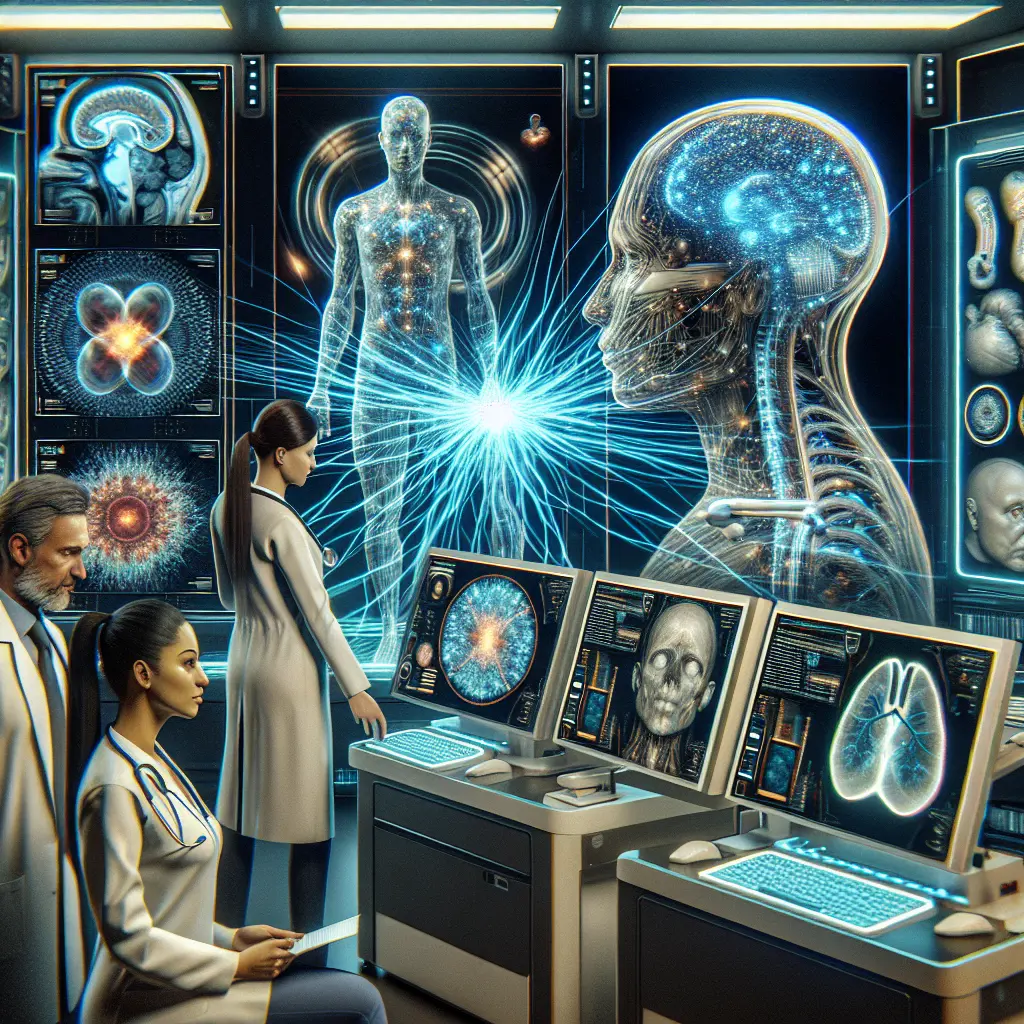
As we stand on the brink of a technological revolution in healthcare, Artificial Intelligence (AI) has emerged as a transformative force, particularly in the realm of diagnostic imaging. The integration of AI technologies into medical imaging is not just enhancing diagnostic accuracy but is also revolutionizing patient care, promising early disease detection, and reshaping the future of healthcare.
The Surge of AI in Diagnostic Imaging
AI's role in healthcare has expanded significantly, touching various aspects of patient care. In diagnostic imaging, AI algorithms are increasingly being utilized to interpret X-rays, CT scans, and MRI images with remarkable precision. These advancements are collectively referred to as AI Diagnostic Imaging or AI Radiology Advances.
Machine Learning in Radiology, a subset of AI, involves training algorithms using large datasets of imaging files. This training allows the algorithms to recognize patterns and anomalies in new images, thereby aiding radiologists in making more accurate diagnoses. For instance, AI-enhanced Imaging Technology is now capable of detecting subtle signs of diseases such as cancer at much earlier stages than traditional methods.
Pioneering AI Startups and Investments
In recent developments, UK-based AI startups have reached a valuation milestone, collectively worth $256 billion. This surge underscores the significant investor confidence in the potential of AI technologies, including those focused on healthcare imaging. Further fueling this sector, Anthropic and Menlo Ventures have introduced a $100 million fund dedicated to AI startups, promising more innovative solutions on the horizon.
Challenges and Controversies
Despite the optimism, there are challenges and controversies surrounding the application of AI in healthcare. A recent revelation showed that ChatGPT struggles with diagnosing patients accurately, highlighting the current limitations of AI tools in complex medical decision-making. Moreover, debates around Universal Basic Income (UBI) sparked by an Altman-funded study suggest societal implications that extend beyond technology itself.
AI Tools Enhancing Patient Interaction and Predictive Analytics
AI's impact is not limited to image analysis. For instance, a new AI tool has shown promise in predicting chronic pain in cancer patients, which can lead to more personalized pain management strategies. Additionally, another AI tool has successfully responded to patient queries within electronic health records, enhancing patient engagement and satisfaction.
Deep Learning: The Backbone of Modern Diagnostic Imaging
Deep Learning in Diagnostic Imaging is perhaps one of the most significant advancements. This technology powers AI for MRI Analysis and AI in CT Scans, enabling machines to process and analyze medical images at speeds and accuracy rates that humans cannot achieve. Deep learning algorithms can detect abnormalities such as tumors and fractures faster than ever before, significantly reducing the time from diagnosis to treatment.
The Role of AI in Early Disease Detection
Early detection of diseases is critical for successful treatment outcomes. AI for Early Disease Detection has become a crucial area of research and application. By analyzing patterns across countless images, AI can identify potential health issues before they become apparent through traditional diagnostic methods. This capability is especially vital in conditions where early intervention can drastically alter the prognosis.
Current Implementations and Future Outlook
Hospitals and clinics around the world are increasingly adopting AI Imaging Software and tools for various purposes—from AI in Ultrasound Imaging to AI Algorithms for X-rays. These tools not only enhance diagnostic capabilities but also improve workflow efficiency by automating routine tasks.
Looking ahead, the Future of AI in Healthcare Imaging seems promising and boundless. With continuous advancements in AI technologies and machine learning models, coupled with increasing investments in AI startups, we can expect more sophisticated tools that will further improve diagnostic accuracy and patient care.
Conclusion
The transformative impact of Artificial Intelligence on diagnostic imaging heralds a new era in healthcare. From enhancing the accuracy of diagnoses with AI-enhanced Imaging Technology to facilitating early disease detection and improving patient interactions through smart algorithms, AI is reshaping the landscape of medical imaging.
As we navigate through these advancements, it remains crucial to address the ethical and practical challenges that accompany such disruptive technologies. However, with ongoing research, investment, and collaboration between tech developers and medical professionals, the future of AI in healthcare imaging looks not only promising but revolutionary.
Authored by Rachel Morrison
For further insights into how Artificial Intelligence is transforming healthcare, readers might explore resources from leading healthcare technology research institutes or publications such as Nature Medicine and The Lancet Digital Health. As we continue to witness this exciting evolution, it is essential to stay informed and engaged with the latest developments shaping the future of healthcare.